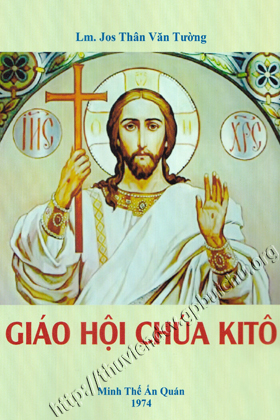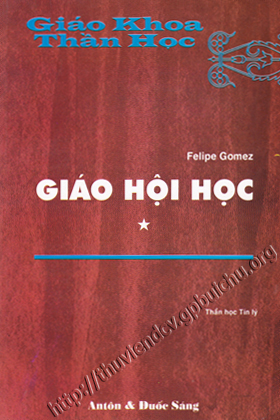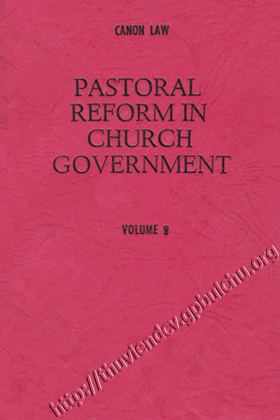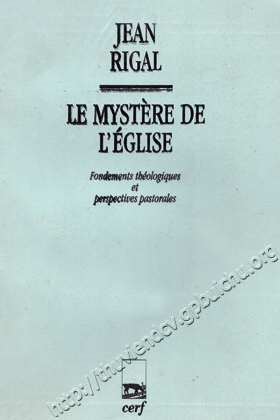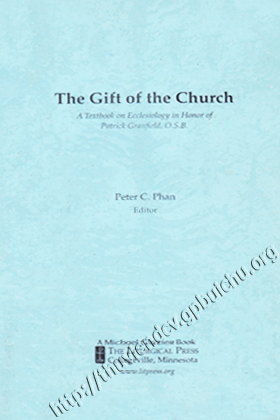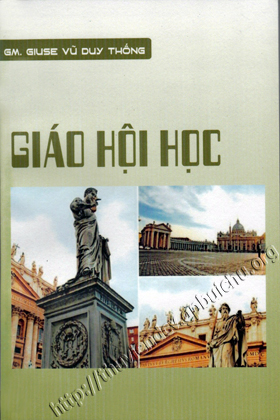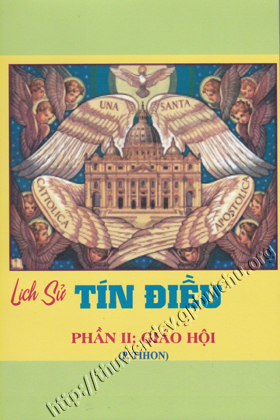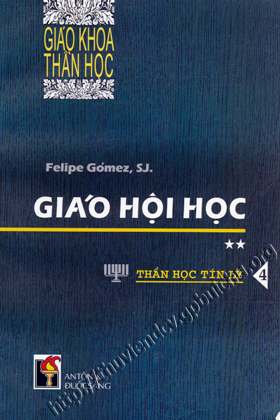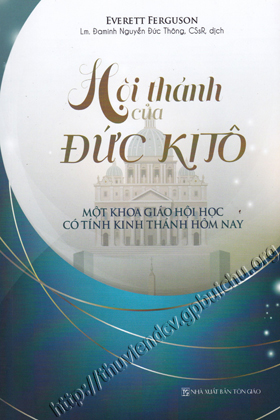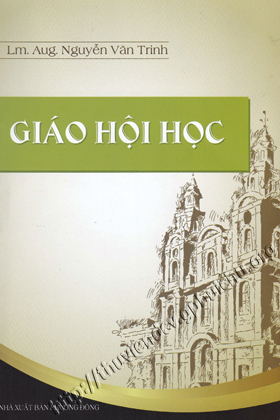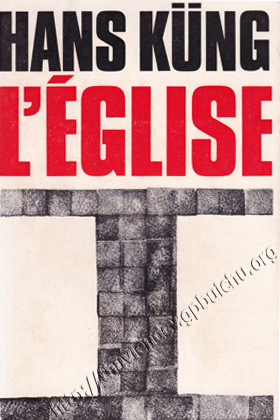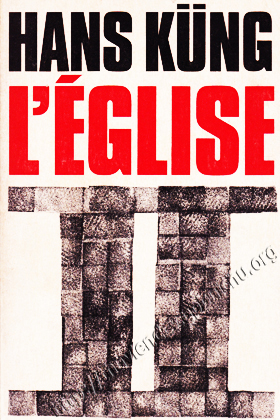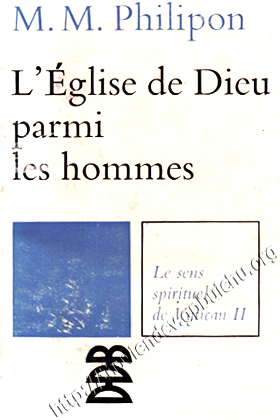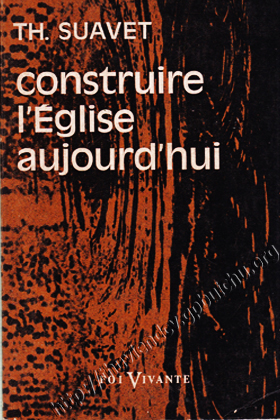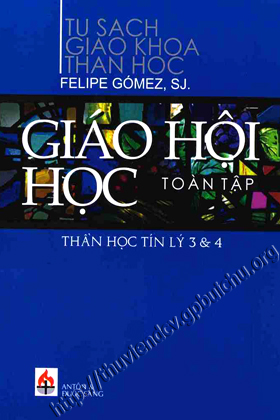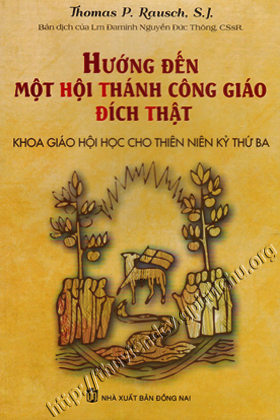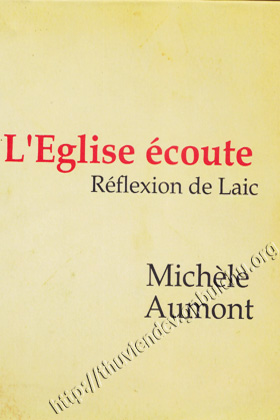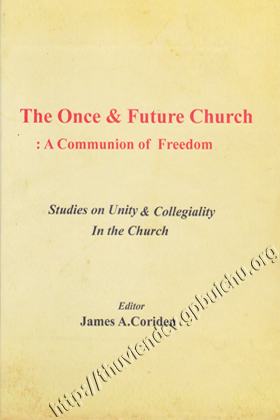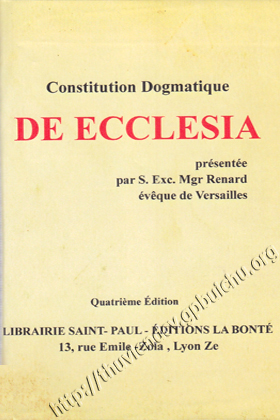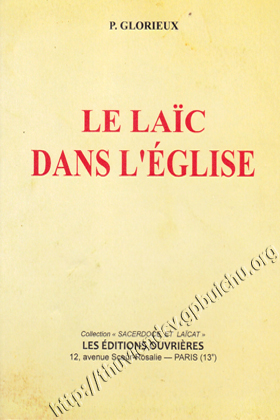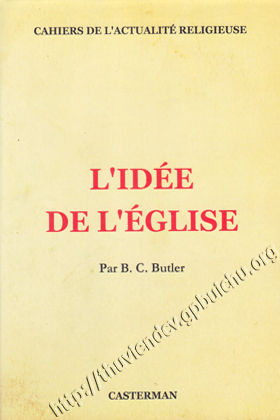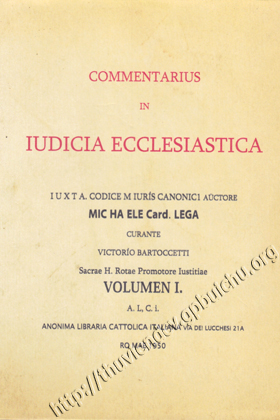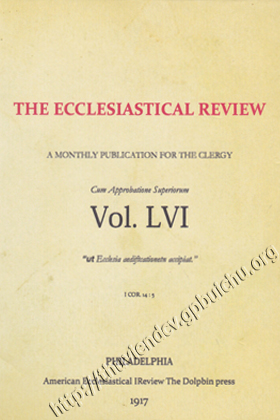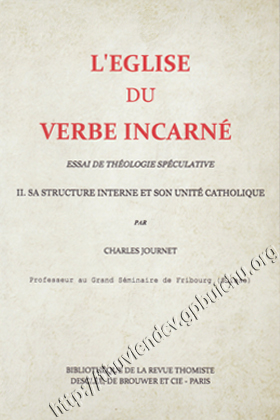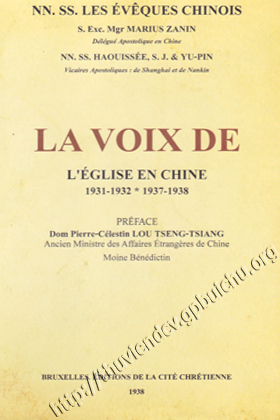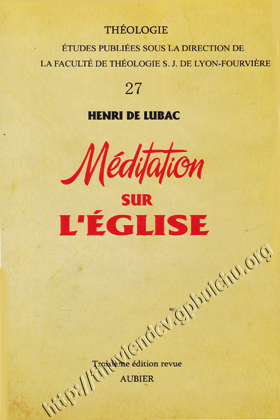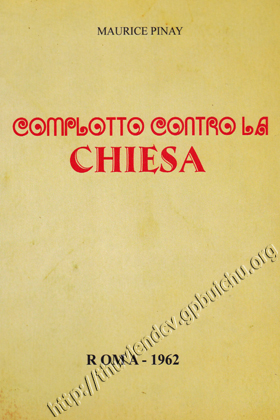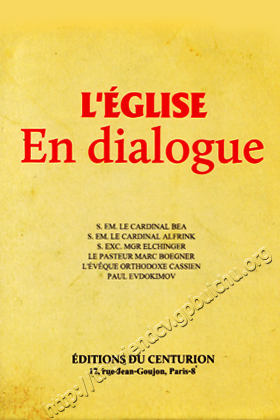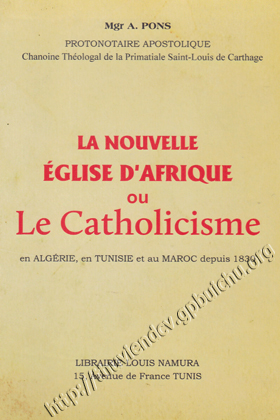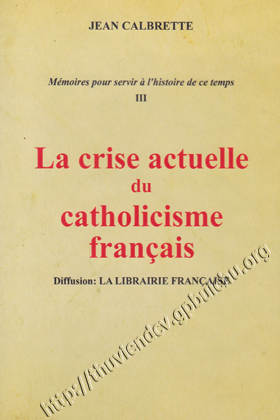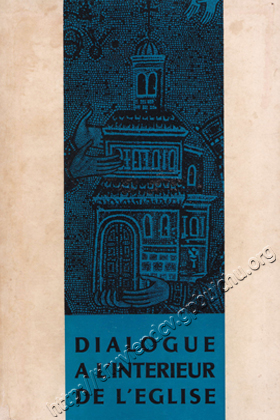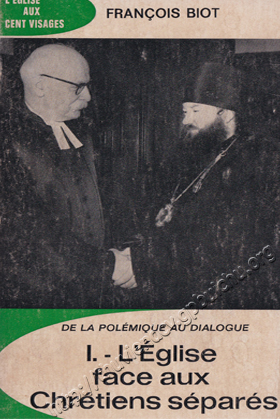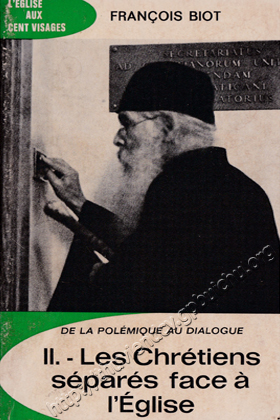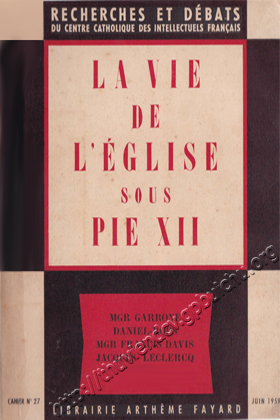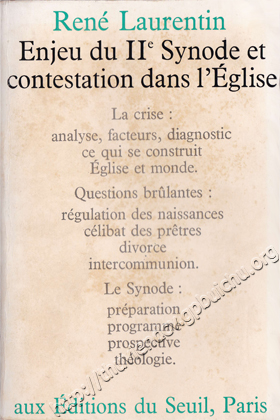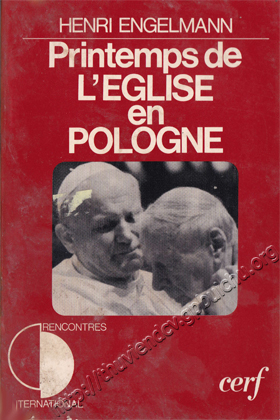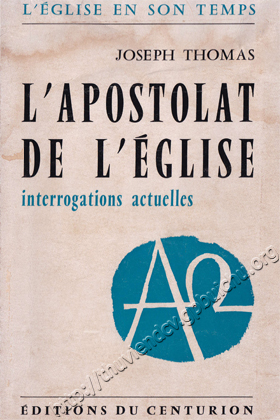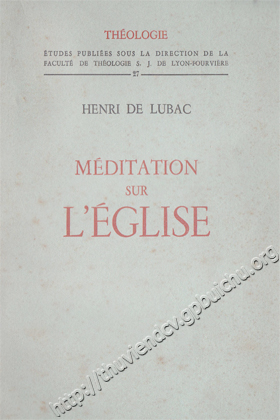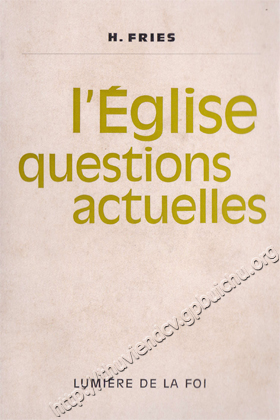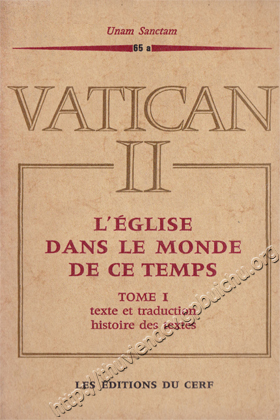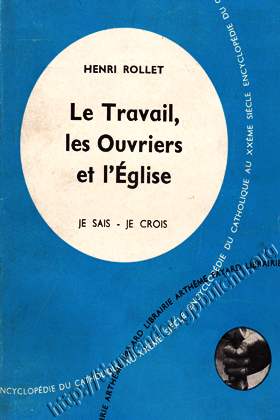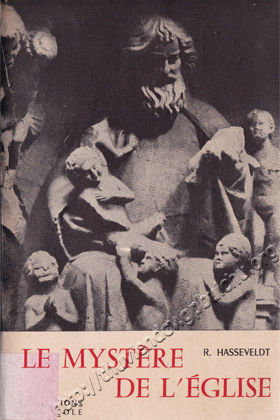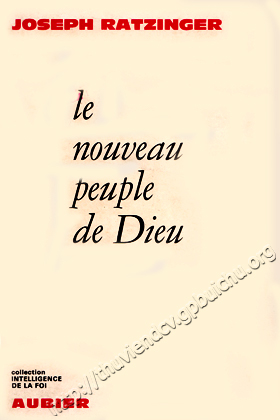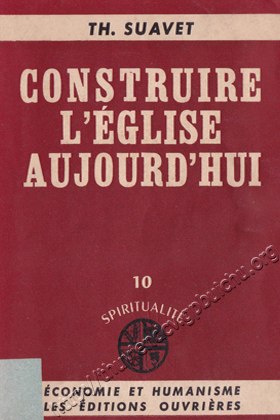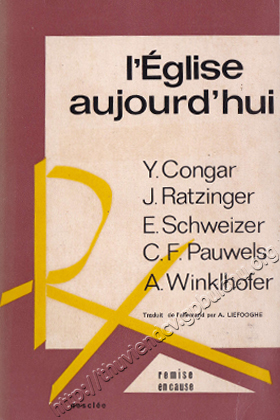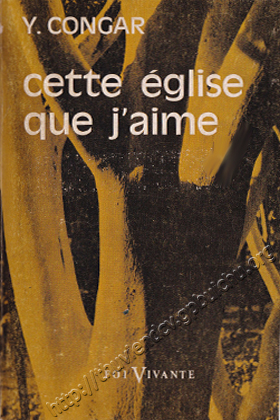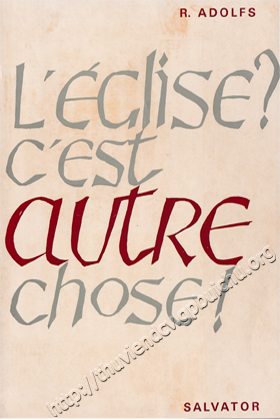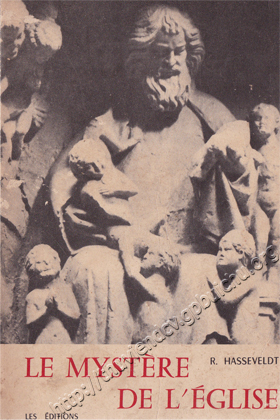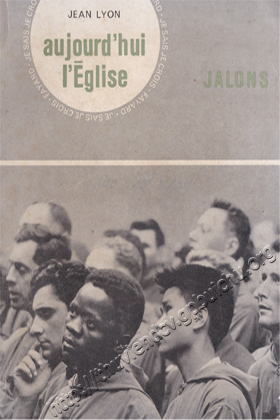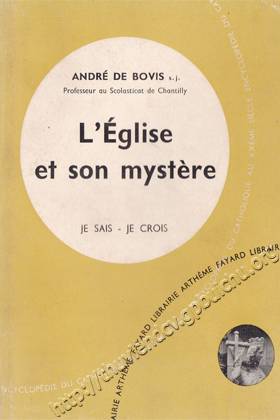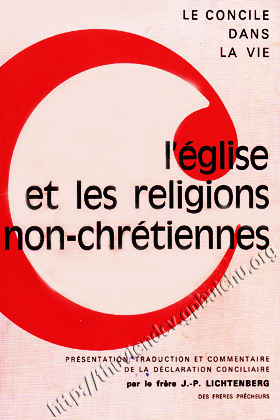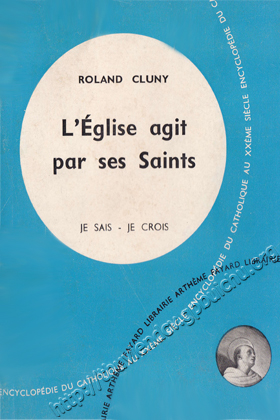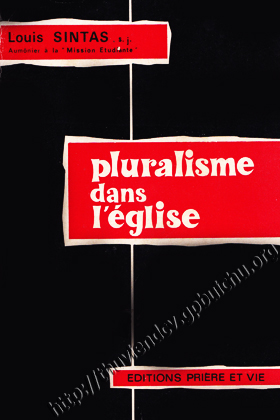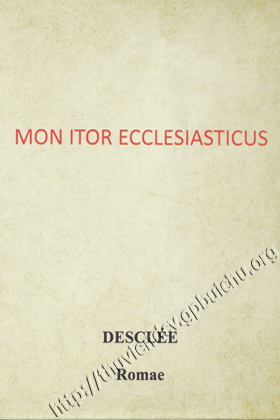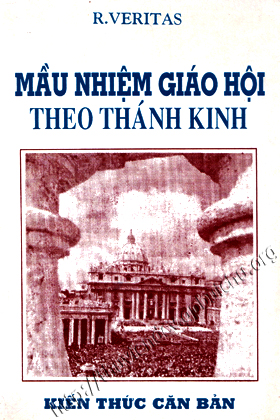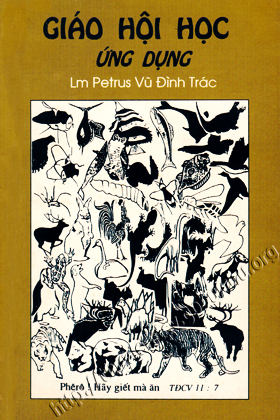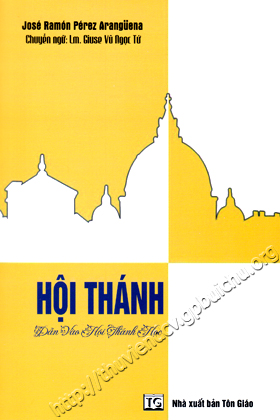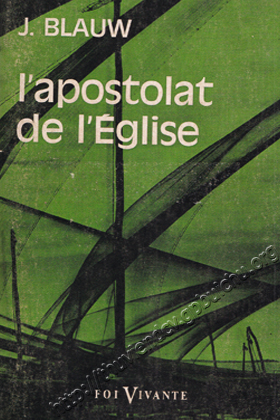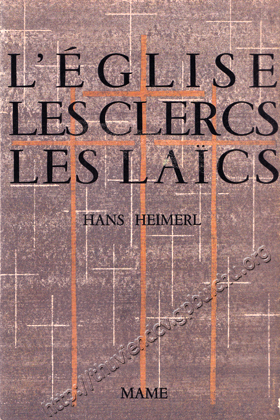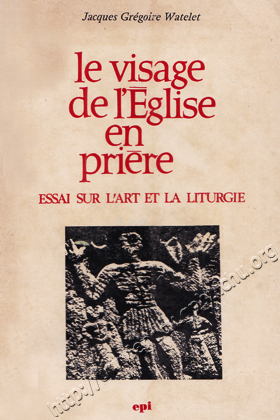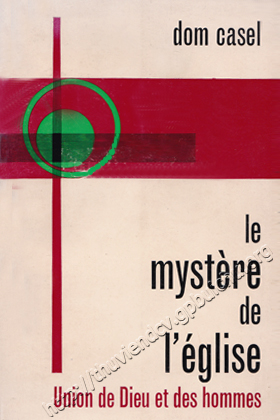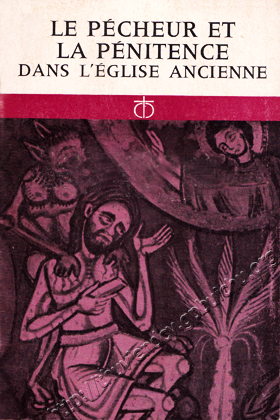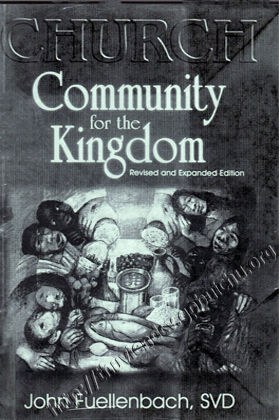
| Church: Community for the Kingdom | |
| Tác giả: | John Fuellenbach, SVD |
| Ký hiệu tác giả: |
FU-J |
| DDC: | 262 - Giáo hội học |
| Ngôn ngữ: | Anh |
| Số cuốn: | 2 |
Hiện trạng các bản sách
|
|
||||||||||||||||||||||||||||||||
» Thêm vào danh sách tác phẩm yêu thích
| Preface | 11 |
| Acknowlegdment | 14 |
| Introduction | 15 |
| Presuppositions | 15 |
| 1. The distinction between individual salvation and the necessity of a Church | 15 |
| subjective and individualistic understanding of the Christian faith | 19 |
| 3. Being a Christian as a call to mission | 20 |
| 4. The meaning of “the keys of the Kingdom” given to Peter | 21 |
| Essential Relationships: Jesus: Kingdom - Church - Israel | 21 |
| 1. Jesus and the Kingdom | 21 |
| God’s intention - his plan for the world | 22 |
| Kingdom as belonging to this world | 23 |
| The Dream of God for creation | 24 |
| 2. Jesus and the Church | 26 |
| 3. Jesus and Israel | 28 |
| Chapter One: Jesus and the Church | 33 |
| I. Return to the Jesus who walked over this earth | 33 |
| II. Biblical findings concerning Israel, Kingdom, Church | 35 |
| The Exodus story: God’s election of a “counter society” | 35 |
| Kingdom and Church in the Gospels | 39 |
| The Kingdom vision mediated through the Church | 42 |
| Conclusion | 46 |
| III. Jesus and the foundation of the Church | 47 |
| 1. The most common positions today | 47 |
| 2. Four representatives of the common positions | 50 |
| Richard McBrien: Catholicism | 50 |
| Gerhard Lohfmk: Did Jesus found a Church? | 51 |
| Walter Kirchschláger: his common points can be summarized as follows | 52 |
| Leonardo Boff: Church, Charisma and Power | 53 |
| Conclusion | 54 |
| Chapter Two: The Church in Vatican II | 59 |
| I. The Council’s vision of the Church | 59 |
| II. Images of the Church in Vatican II | 62 |
| 1. THE NEW PEOPLE OF GOD............................................. | 62 |
| A gratuitous election by God | 65 |
| The communitarian aspect | 67 |
| A people of equals | 69 |
| A pilgrim people | 69 |
| Conclusion | 70 |
| 2. THE CHURCH AS BODY OF CHRIST .......................... | 72 |
| The image as used in the Council | 72 |
| The origin of the “Body of Christ” symbol in St. Paul | 73 |
| The Body of the Risen Christ and not the physical body of Jesus | 78 |
| The “broken mirror” Model | 83 |
| 3. THE CHURCH AS TEMPLE OF THE HOLY SPIRIT … | 85 |
| The Spirit who “Constitutes the Church | 85 |
| Call to Mission | 89 |
| Church “Icon of the Trinity” | 92 |
| Conclusion | 92 |
| Chapter Three: The meaning of the term “Church” in Vatican II | 99 |
| 1. Church as “CATHOLIC CHURCH” | 99 |
| 2. Church as “LOCAL CONGREGATION” | 100 |
| 3. Church as “COMMUNITY OF THE BAPTIZED” | 101 |
| 4. Church refers to the “PEOPLE OF ISRAEL” | 102 |
| 5. The Church “FROM ABEL ON” | 103 |
| 6. The “HOUSE CHURCH” (Lumen Gentium 11) | 105 |
| Chapter Four: The Church in the Context of the Kingdom | 107 |
| I. Church in relation to the world and to God’s universal plan of salvation | 107 |
| II. The Church and the Kingdom now in history: identical or non-identical | 110 |
| 1. Arguments for an Identity of the Church with the Kingdom in history | 110 |
| 2. Arguments against an Identity of the Church with the Kingdom in history | 112 |
| 3. Biblical foundation for a Non-identity | 116 |
| 4.The theological fruits of such Non-identity | 117 |
| 5. Voiced “reservations” to a “Kingdom-centered Church” | 118 |
| Conclusion | 122 |
| III. The Kingdom of God as present in the Church | 123 |
| The Kingdom in “spatial” and “dynamic” terms | 126 |
| Difficulties voiced with this view | 128 |
| Chapter Five: Emergence of a World-Church | 133 |
| I. A Theological Interpretation of Vatican II | 133 |
| Introduction | 133 |
| The emergence of a World Church in Vatican II | 134 |
| was a Council of the World-Church as such | 134 |
| What are these three epochs? | 135 |
| First the epoch of Jewish Christianity | 135 |
| community freed from Judaic Law | 138 |
| The third epoch: the transition of the Western Church to a World Church | 139 |
| Conclusion | 142 |
| II. Megatrends affecting the Church Today | 143 |
| 1. Resurgence of Cultural Traditions | 144 |
| and political globalization | 146 |
| 3. Revival of Religious Experiences | 146 |
| encounter of God within small faith communities | 147 |
| 5. Problems in Ministerial structures: | 147 |
| 6. The Western Church in Crisis | 149 |
| poor and oppressed in the plan of God for humanity | 149 |
| 8. New Presence and Significance of Women | 149 |
| 9. New Frontiers for Mission | 150 |
| 10. Co-partnership with the Earth | 150 |
| Conclusion | 151 |
| III. The Four Sources of Theology | 151 |
| 1. Bible, Tradition and the Magisterium: theological data | 151 |
| 2. The current life of the worshiping community | 152 |
| the committed” Christian community | 153 |
| 4. The present of the Holy Spirit | 154 |
| 4. The present of the Holy Spirit 154 Conclusion | 154 |
| Chapter Six: The use of models in Theology to describe the Church today | 157 |
| I. What is a model? | 157 |
| II. Different Models of Church | 163 |
| Introduction | 163 |
| ... | |




